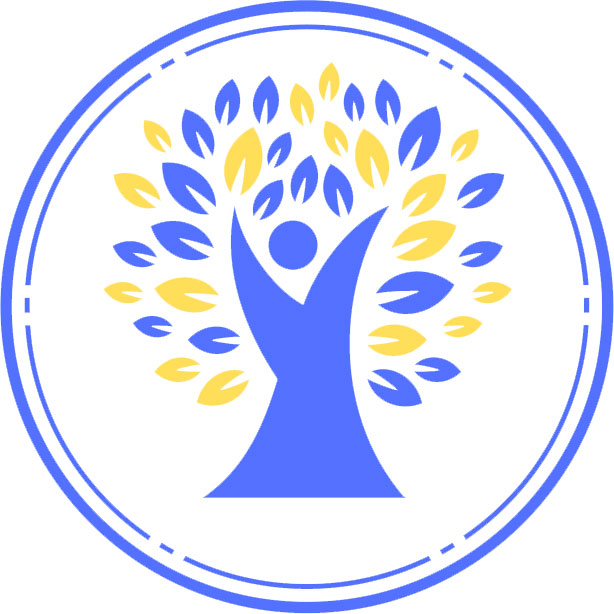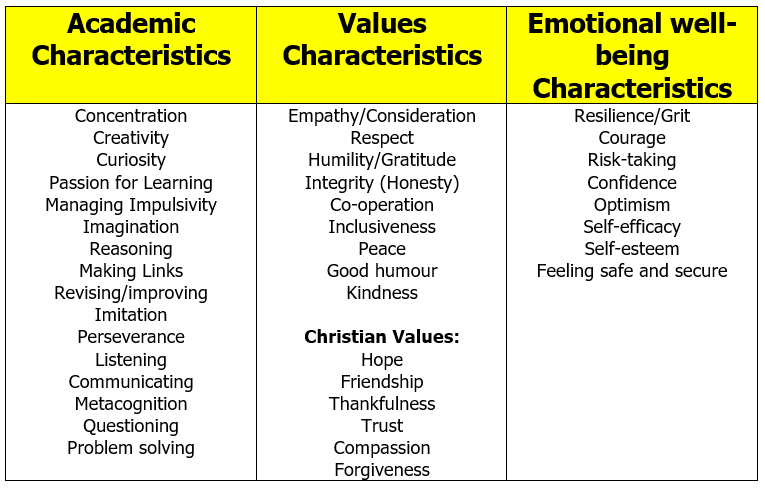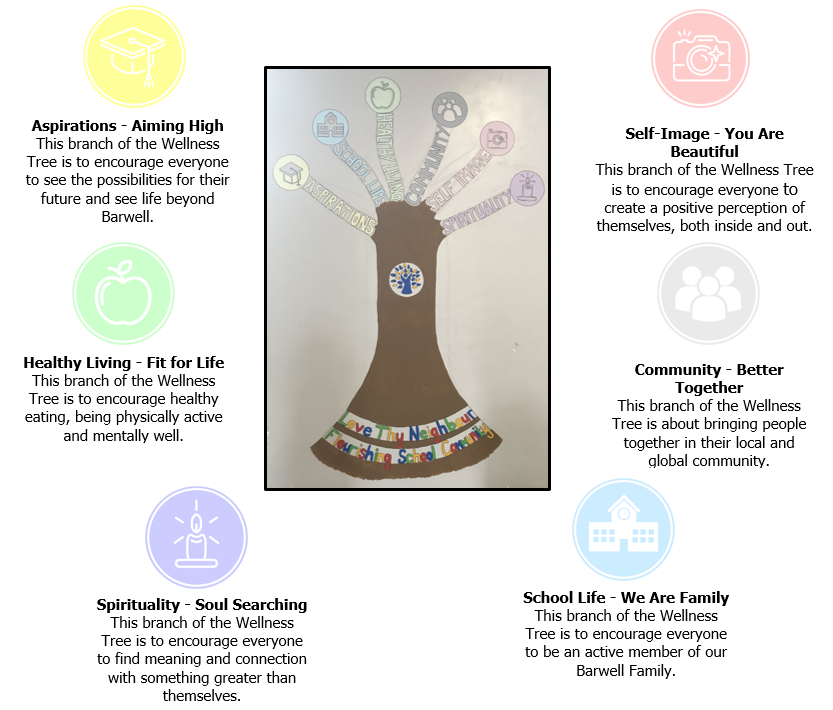The Great Barwell Journey to Wellness

In the Great Barwell Learning Adventure, it sets out how the curriculum should be at the heart of learning; a living breathing thing that drives the school practices and procedures forward. As important as we believe our curriculum to be however, there has to be more to a school. We are educators in the widest sense of the word – we do more than teach knowledge. We are part of a wider school family, a wider community that has a responsibility to shape the future, not just for children who attend our school but to the widest possible audience of what it means to be a good global citizen and how to flourish in our society.
Research
Social inequalities begin before a child is even born and continue right through their lives. They start school behind their more advantaged peers, and the gap in performance widens as they progress through the education system. This disadvantage comes not only from income poverty but also a lack of social and cultural capital. The lack of language acquisition particularly affects children from disadvantaged backgrounds and our reading curriculum and other interventions hope to address this within school, however these children are also disproportionately more likely to lack the necessary precursors – a good level of health and wellbeing, a nutritious diet, a supportive and stimulating home environment – to learn and perform well in school.
Based on the outcomes of the above research, we are driven to help support families with their physical and mental wellness. Disadvantage for our families comes in a lot of shapes and sizes and it is not as simple as looking at children who are in receipt of Pupil Premium funding. We believe that our whole school will benefit from a holistic approach to promoting healthy lifestyles, and when we say healthy lifestyles, we mean both in terms of being physically fit and healthy but also being mentally well too to be able to face life’s adversities and celebrate its triumphs.
Principles
Below is a set of principles for our Journey to Wellness to be built upon:
- Inclusive – we recognise that everyone has a different starting point in their journey and our approach is adapted to fit
- Shared responsibility – a whole school approach is needed that is adopted by everyone
- Non-judgmental – we do not judge others
- Well informed – we use research to inform our approach
- Holistic – recognition that the themes within our mental and physical wellness journey are intertwined and cannot be taught in just weekly PSHE or Physical Education lessons alone
- Systematic – we have set structures and procedures to follow to ensure our practices continue
- Adaptive – our approach should be fixed enough so that we have systems in place but it should still be able to cater for the community, the whole school, group or individual needs as they arise
To enable us to navigate our journey and keep us on the right path, we have a Wellness Hub of key staff who meet regularly. They include: Headteacher; Family Link Worker; Mental Wellness Leader; Physical Wellness Leader; RE and Spiritual Education Leader; Vulnerable Groups Leader. The remainder of this document sets out how we approach our Journey to Wellness. This covers many aspects of what we deliver in our school and should be read alongside other key policies and documents.
Our Character Values
At the very heart of our approach to wellness is to have a shared language across the whole school. These are important words that will equip children and staff to discuss what characteristics are needed to progress through life. They are divided into Academic Characteristics, which focus on those characteristics that help children with their learning; Values Characteristics, which focus on children’s personal character and involve our Christian Values that are learnt about in more detail each half term and give children the chance to explore the Biblical theory behind them; and finally, the Emotional and well-being Characteristics that help support children’s emotional development. Each week in our Achievement Assembly we celebrate two children from each class who have shown a good example of a characteristic. Families are invited to these assemblies so that we can celebrate together but also so we can spread knowledge of what we believe to be important. Below is a table which sets out which characteristics are covered in each section:

Our Character Values are not taught discretely but are part of our everyday language and behaviour in school. These are modelled by staff and discussed throughout each day in lessons.
Our Wellness Tree
In order to ensure that we cover all aspects of wellness, our Wellness Hub devised a Wellness Tree that resides in the hall. Its branches all relate to an area that we have identified as being something that would be beneficial for our children and our school family to focus on. As well as it helping guide us on the coverage of all areas of wellness, it also allows us to target different areas and make challenges for our families. Below shows our Wellness Tree and the different branches that it covers:

